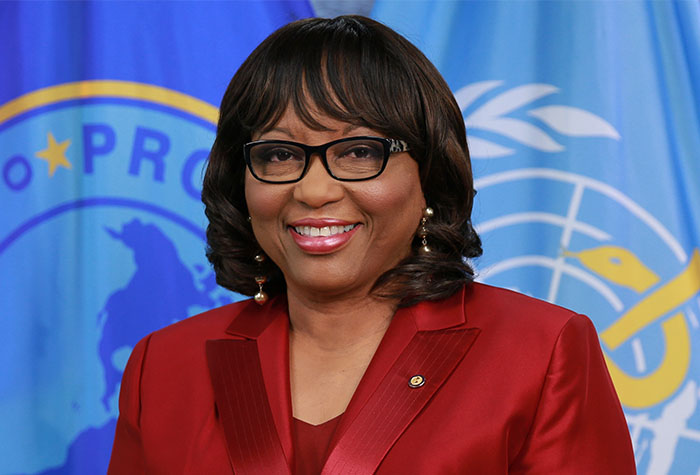PAHO Head Urges Caution In Relaxing COVID-19 Restrictions
By: , May 7, 2020The Key Point:
The Facts
- “This is a concerning indicator that tells us that transmission is still very high in those countries and they should implement [and maintain] the full range of public health measures that are available [such as ] extensive testing, contact tracing, isolation of cases and, of course, social distancing,” Dr. Etienne said.
- Dr. Etienne said the region’s COVID-19 statistics suggest that “now is the time for intense vigilance,” stressing that “we must all continue to act aggressively to contain the spread.”
The Full Story
Director of the Pan American Health Organization (PAHO), Dr. Carissa Etienne, is urging caution by member countries that are looking to ease coronavirus (COVID-19) safeguards in order to facilitate the phased resumption of economic activities.
Addressing a digital media briefing on Tuesday (May 5), Dr. Etienne noted that there is now “growing debate” about when countries can start to reopen and relax social distancing measures.
She advised that in making such decisions policymakers must carefully analyse data on COVID-19-related developments in their respective countries and others “as easing the restrictions too soon could accelerate the spread of the virus and open the door for a dramatic upsurge or for spread to adjacent areas.”
“Analyse the rate of new cases and deaths, evaluate hospital bed capacity and determine what [that] tells you about the spread of the virus in your country or state,” she said.
The PAHO Director noted that up to May 4, more than three months since the first case of COVID-19 was reported in the Americas, the virus had spread to all 52 member States, resulting in more than 1.4 million persons being infected and some 8,000 deaths.
She said that much has been learnt about the virus from the experiences of member States and many other countries globally and “we must use what we have learnt and the data that we have gathered to make smart choices that will impact the next phases of the pandemic.”
She noted that PAHO, for its part, tracks and analyses a range of COVID-19 data from countries, including new cases and deaths, the number of occupied hospital beds and intensive care units (ICUs), among other indicators.
This data, she pointed out, paints a picture of how the virus is impacting the Americas, what interventions are effective, areas of concern and where to focus greater attention.
Dr. Etienne said one of the indicators being closely tracked is the speed at which new cases increase, noting that there are countries “where we are seeing cases doubling in four days or less.”
Among these are the United States of America (USA), Canada, Mexico, Brazil, Ecuador, Peru, and Chile.
“This is a concerning indicator that tells us that transmission is still very high in those countries and they should implement [and maintain] the full range of public health measures that are available [such as ] extensive testing, contact tracing, isolation of cases and, of course, social distancing,” Dr. Etienne said.
She said that while the USA, like Canada and Mexico, is experiencing community transmission “we are encouraged to see places like New York registering an overall decrease in hospitalisations”, particularly of younger persons, who have been infected.
Dr. Etienne pointed out, however, that hospitalisation and deaths of older adults have been “extremely high,” hence the need to keep in place special measures to protect this vulnerable group.
As it relates to the Caribbean region, Dr. Etienne said that most countries are still in the early stages of their outbreaks, with community transmission only been reported in the Dominican Republic and Cuba registering over 1,000 confirmed cases.
She noted that small island Caribbean States have for the most part implemented very strict public health measures, including air travel restrictions, which are having a positive impact in slowing the spread within their borders.
“Not all communities are affected in the same way [and] health system capacity is also very diverse. But we now know what works to prevent transmission and we learn more every day,” she noted.
Dr. Etienne said the region’s COVID-19 statistics suggest that “now is the time for intense vigilance,” stressing that “we must all continue to act aggressively to contain the spread.”
She argued that the social and economic pressure now being experienced “will be even greater, if we fail to contain the virus, remove control measures prematurely, and then overwhelm our health systems’ capacity”.
Dr. Etienne said that PAHO is working with each country to identify trends that are specific to their unique context “as our region has a mosaic of diverse epidemiological scenarios.”
“Based on evidence and WHO (World Health Organization) and PAHO’s guidance, each country must adjust its approach to what is happening at the district, city or state level,” she added.




